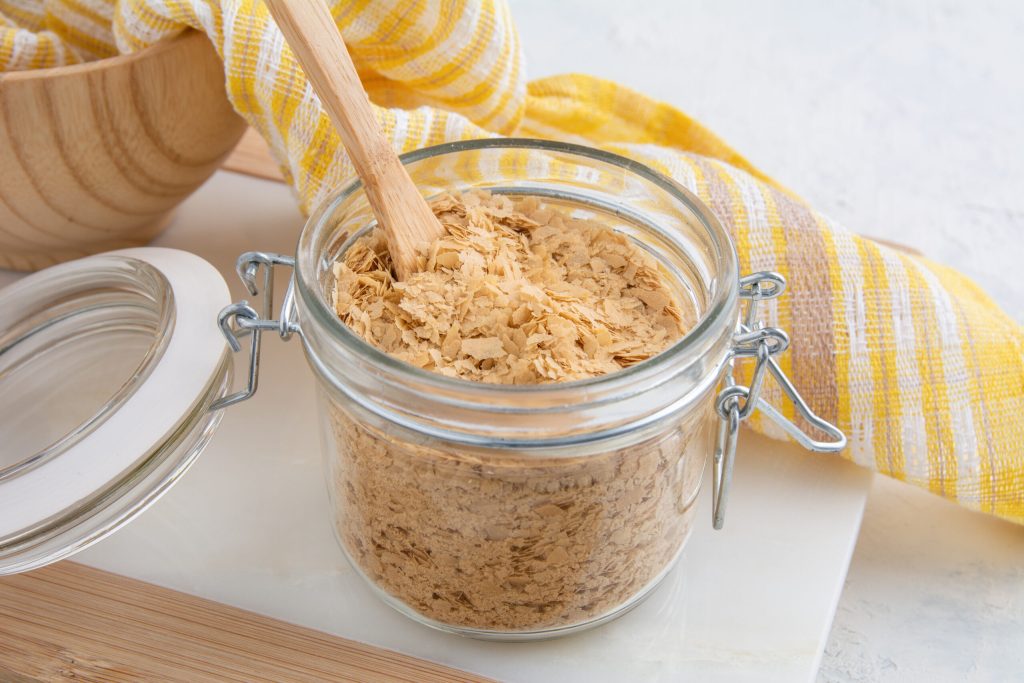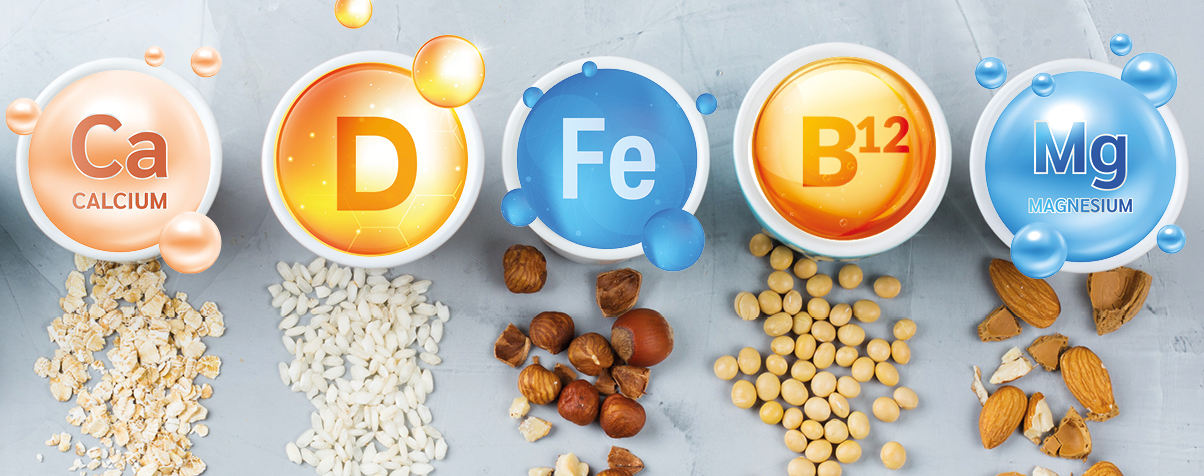21/09/2022
There are many reasons that people consider a vegan or plant-based diet, including ethical, environmental and health motivations with health benefits including weight loss, and reduced LDL cholesterol. .
Whilst a vegan and plant-based diet can be a healthy lifestyle choice, it can also leave the body susceptible to deficiencies in Vitamins and Minerals that we gain from meat and dairy sources. A 2019 survey commissioned by HSIS of 1000 vegetarian and vegans found that 28% of vegans and 13% of vegetarians reported as having been been diagnosed with a nutrient deficiency following a blood test.
So how can we ensure to include key sources of vitamins and minerals in our diet? Understanding the food sources to incorporate into a balanced diet and considering nutritional intake is key. We have outlined 5 essential vitamins and minerals partnered with plant-based sources to help prevent hidden hunger and deficiency.
Vitamin D
A 2021 study by The British Nutrition Foundation found that almost half of UK adults are not aware of the Government’s recommendation to take a Vitamin D supplement during winter months. Vitamin D helps to regulate the amount of calcium and phosphate in the body, nutrients which are required to maintain healthy bones, teeth, and muscles. Whether following a plant-based diet or not, we should all be conscious of our Vitamin D intake.
If you are curious about out Vitamin D deficiency, check out our blog detailing 4 reasons to not ignore that curiosity and act.
Gov.uk suggest that a recommended daily intake for Vitamin D is 10 micrograms for 1–70-year-olds.
The NHS highlight good sources of Vitamin D for Vegans, including:
- Fortified fat spreads
- Breakfast cereals
- Soya drinks (with added Vitamin D)
- Supplements for the winter months.

Vitamin B12
A deficiency in Vitamin B12 can produce symptoms including disturbed vision, irritability, and mouth ulcers. The NHS recommend at least 1.5 micrograms a day. According to the Vegetarian Society, for people not eating animal products, yeast extract and other fortified/supplemented foods such as breakfast cereals, soya milks, soya/veggie burgers, and vegetable margarines are all good sources of Vitamin B12.
Iron
Iron is considered an essential nutrient as it helps our body to create haemoglobin, which carries oxygen in the blood and promotes a healthy immune system. Iron deficiency can cause anaemia, producing symptoms such as headaches and fatigue. Many people gain iron in their diet through cereal products, and meat-based foods meaning that those following a vegan diet can be particularly susceptible to iron deficiency.
The British Dietetic Association recommend 8.7mg of iron per day for Men over 19, 14.8mg per day for pre-menopausal woman and 11.3mg for male teenagers. This can be achieved through the following plant-based iron sources:
- pulses and legumes (such as beans, peas, and lentils)
- dark green vegetables (such as spinach, kale and broccoli)
- nuts and seeds
Calcium
Calcium is important in promoting health bones and teeth. A comparison study of vegetarians and nonvegetarians found that vegans were at a higher fracture risk as a consequence of their considerably lower calcium intake.
The NHS recommend that a daily intake of 700mg per day for those aged 19-64 to reduce risk to bone health.
Calcium figures in mg per 100g of the following foods:
Vegan Sources of 100g | Calcium Figures |
Tahini/Sesame Seed Spread | 680mg |
Almonds | 240mg |
Raw Spinach | 170mg |
Cooked Spinach | 150mg |
Cooked curly kale | 150mg |
Hazelnuts | 140mg |
Sunflower seeds | 110mg |
Pak Choi | 105mg |
Quinoa | 60mg |
Oats | 54mg |
Magnesium
Magnesium assists the body in functions such as building proteins and strong bones, and regulating blood sugar, blood pressure, and muscle and nerve functions.
According to a national survey from Viva.org.uk, over 11% of working-age adults and 1 in 10 adults over 65 are falling short of the target for magnesium
Public Health England – recommended daily men = 300 mg | recommended daily female = 270 mg
Vegan Food Source | Magnesium Intake (mg) |
Quinoa | 115 mg |
Peanuts | 105 mg |
Wholemeal Spaghetti | 101 mg |
Wholegrain rice boiled | 86 mg |
Brazil nuts | 82 mg |
Pumpkins seeds | 76 mg |
Spinach | 72 mg |
Almonds | 70 mg |
Can I check what exactly I am deficient in?
A Vitamin or mineral deficiency can have wide ranging effects and are associated with fatigue, low energy, and depression. The Vitamins and Minerals health check detects over 11 essential data points, and is available in-clinics across England, Scotland, and Northern Ireland.
Receive a personalised health report in 2 working days, alongside a consultation to discuss how to improve and maintain your current and future health.



